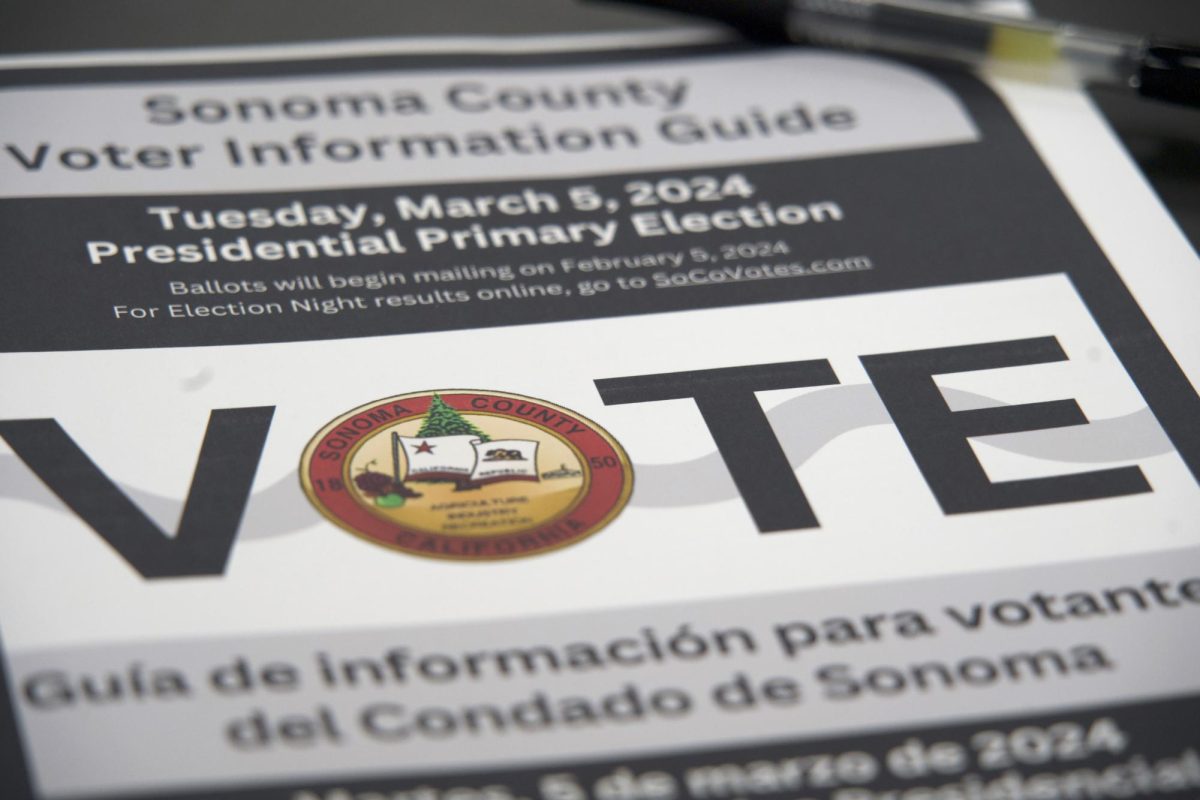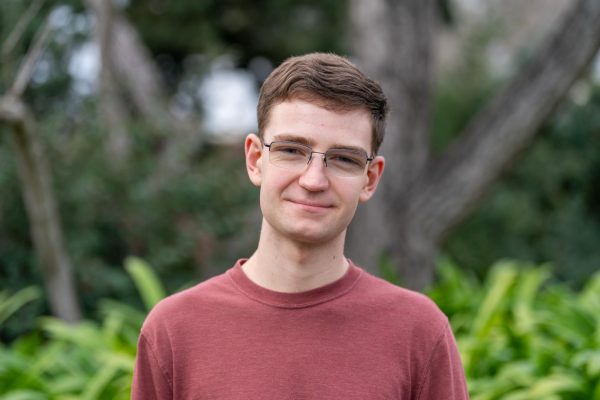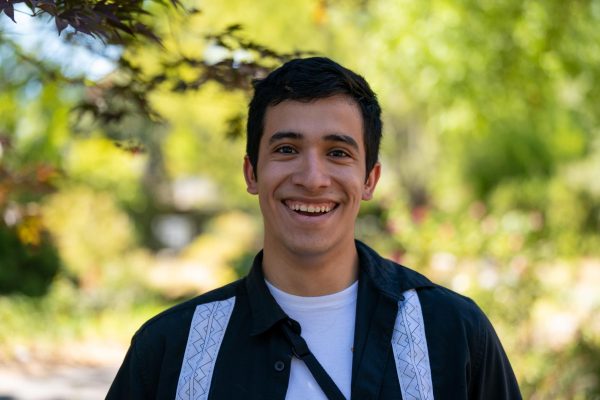In the wake of Sen. Dianne Feinstein’s death last year, candidates for California’s federal senate seat have big shoes to fill. The task of choosing Feinstein’s successor is now up to voters, who will be greeted by a slew of candidates vying for the spot, and something unusual: California voters will be voting twice.
Given that the late Senator Feinstein died during her term, the Newsom-appointed Laphonza Butler has been serving in her role. Voters will select a candidate to take over from Butler and serve out the rest of Feinstein’s term, which will stretch from November’s election day to Jan. 3, 2025. The second Senate race on the ballot then decides the “regular” election, or who will serve the standard six-year term starting in Jan. 2025.
Here’s a look at some of the key players in this race, which will be the only statewide position on Sonoma County ballots this year.
Adam Schiff – Democrat
Among 30 fellow challengers, Adam Schiff, a Democratic member of the U.S. House of Representatives, is a top contender for the U.S. Senate seat up for grabs in California’s 2024 election. Schiff’s strong polling and name recognition suggests that he is a long-time political mainstay, but in reality his rise to the spotlight has been both rapid and recent.
Schiff was born in Massachusetts on June 22, 1960. His family moved out west to California where he graduated high school, eventually attending both Stanford and Harvard Law School.
Schiff got his start working as a federal prosecutor in Los Angeles. In 1996, he was elected to the California State Senate. In 2000, Schiff won the race for California’s 30th Congressional District in the U.S. House of Representatives. He has served in this role since then.
In 2019, Schiff was appointed chair of the House Permanent Select Committee on Intelligence. As chair, he conducted the work most Americans know him for: investigating a whistleblower report alleging former President Donald Trump leveraged U.S. aid against Ukrainian President Volodymyr Zelenskyy in exchange for political favors.
Schiff played the role of a critical leader for impeachment inquiries in the House. When articles of impeachment were adopted and Trump’s case was heard in the Senate, House Speaker Nancy Pelosi appointed Schiff as head prosecutor.
Last year, Schiff became mired in further controversy surrounding former President Trump when the House voted along party lines to censure him on grounds that he “misled the American people,” and that allegations he made against Trump were “false.”
Schiff’s recent legislative activity includes voting “yes” on the Inflation Reduction Act of 2022, which, among other measures, introduced a minimum corporate tax rate and allowed for Medicare drug price negotiations. He also voted for the Fiscal Responsibility Act of 2023, which raised the debt ceiling after tense negotiations threatened a default on U.S. debt.
Currently, Schiff sits as a member of the House Judiciary Committee.
On his Congressional website, he identified investment in renewable energy, criminal justice reform, Armenian-American advocacy, assault weapons ban, student debt cancellations and others as his key issues.
Steve Garvey – Republican
Steve Garvey stands as the only Republican who garnered enough support to make it onto the debate stage alongside his three contenders: Adam Schiff, Barbara Lee and Katie Porter. With no political record to speak of, who is he?
On Dec. 22, 1948, Garvey was born in Tampa, Florida. He graduated from Michigan State University with a bachelor’s of science. Excelling in sports and dedicating most of his time to baseball, Garvey landed himself a spot in the Michigan State Baseball Hall of Fame. His athletic ability eventually led him to play in the MLB where he was drafted by the Los Angeles Dodgers in 1969. He played with them until 1982, then went on to play with the San Diego Padres until the end of his career in 1987. Garvey has appeared on radio and TV shows and commercials, and also worked as a motivational speaker for a time, so he is no stranger to being put on the spot.
To make up for his lack of political experience, he distinguishes himself from his fellow candidates with his positions and proposed policies.
Last October he appeared on Fox 11 with Elex Michaelson. When asked what his most prioritized domestic issue is for California, he said “quality of life.” He went on to explain that he means that he wants to do his part in fixing the economy, tackling crime on the streets, providing quality healthcare and fixing the education system.
When asked what his most important international issue is, he said “national defense,” meaning he wants to secure the nation’s borders. He goes further on his website, stating that he wants to ensure that the United States keeps its commitments to alliances made and modernizes its military. Overall, he wants to live up to the phrase “peace through strength.”
He was also asked in that interview about his stance on abortion. He did not answer with his personal beliefs, but he did say that he would uphold the stance of California, where the large majority of its citizens support the ability to have abortions.
He intends to invest in California’s water infrastructure to ensure that we don’t suffer droughts as badly as we have in the past, and to support farmers in providing food in a way that is environmentally sustainable. He intends to help promote fuel that is clean and viable, using new technologies. Regarding the homelessness crisis, he wants to focus on the mental health and the addiction of the homeless population, along with affordable housing.
He is a big supporter of both Israel and Ukraine in their respective wars. With regards to Israel’s military efforts in Gaza, although he does support its efforts in defending themselves against terrorism from Hamas (like what occurred on Oct. 7, 2023), he does support an eventual “coexistence” solution to the conflict. His strong support of Israel sets him apart from his opponents. He plans to work on a diplomatic solution to the Ukraine war, and he believes that the U.S. will play a significant role in making that happen.
Gail Lightfoot – Libertarian
Not all contenders for California’s open U.S. Senate seat are Democrats or Republicans. Hailing from the Libertarian Party, Gail Lightfoot seeks to end the federal government’s many “wars” if elected.
Born in Santa Monica on Sept. 18, 1937, Lightfoot is a California native who has lived in the state her whole life. Having received her Registered Nurse diploma from the Los Angeles County Hospital’s School of Nursing, Lightfoot now resides in Arroyo Grande after retiring as a professional nurse.
After joining the Libertarian Party of California (LPC) in 1972, Lightfoot became seriously involved in politics in 1980, becoming the LPC’s state and national candidate in many elections across multiple years.
A big moment in Lightfoot’s political career was representing the LPC in the U.S. Supreme Court case “Lightfoot v. March Fong Eu,” where the LPC sought to overturn California’s open (blanket) primaries. These open primaries allowed non-party members to vote for other political parties’ candidates. Ultimately, the Supreme Court sided with Lightfoot in bringing an end to open primaries in California.
In 2009, Lightfoot brought another case to the Supreme Court in “Lightfoot v. Bowen,” in which she argued former President Barack Obama’s swearing-in should be nullified due to Obama being a “foreign subject from birth.” The Supreme Court refused to hear this case.
Lightfoot wishes to bring an end to the many foreign and domestic “wars” that the United States is engaged in. One of these domestic “wars” that Lightfoot is focused on ending is the “War on Drugs.” Lightfoot promises to help bring this “counterproductive and expensive war” to an end if elected.
Lightfoot also believes the nation would see a positive change in its relation with drugs through the abolishment of the Drug Enforcement Agency, and the removal of the federal government’s ability to regulate drugs.
Lightfoot also plans to better the current situation of the United States’ immigrant population. Lightfoot believes that when the Declaration of Independence says “All men are created equally” this refers to all, and not just some citizens, and so she plans to open more pathways to citizenship and to remove current methods used to prosecute immigrants.
Barbara Lee – Democrat
Barbara Lee, the representative from California’s 12th Congressional District, has focused on resilience as a cornerstone of her Senate campaign’s messaging. Lee’s messaging draws on past adversity she has faced on her journey through the world of both politics and personal life.
Born in El Paso, Texas — a town then segregated — Lee moved to California to attend high school in San Fernando. As a teenager, Lee traveled to Mexico to obtain an abortion that would have been illegal in California, an experience she has cited alongside her support of reproductive justice.
While juggling life as a single mother of two sons, Lee completed her education and obtained a master’s degree. In college, Lee worked as a volunteer in association with the Black Panthers, though she never joined formally. This work served as Lee’s gateway into the world of politics.
She won a seat in the California Assembly in 1990 and was elected to the state Senate six years later.
Lee successfully ran for a seat in the U.S. House of Representatives in 1998. Not long after, following the Sept. 11th terrorist attacks, she found herself in the national spotlight. In a deeply controversial move, Lee cast the only vote against the 2001 Authorization for Use of Military Force (AUMF).
Approved just a week after 9/11, the AUMF authorized the president to use whatever force was deemed necessary to retaliate against perpetrators of the attack. Without a set expiration date or other limit, Lee characterized the act as writing a “blank check” for the executive use of military action. Her stance proved to be contentious, but she has continuously stood by her criticisms of the powers the act ceded to the president.
Lee strongly advocates for a permanent ceasefire in Gaza. Her campaign describes her as “among the first” to take this position in Congress.
Key positions Lee has taken on hot-topic issues include support of medicare-for-all, the codification of Roe v. Wade, a 95% windfall profit tax and a $50 minimum wage. More broadly, she supports additional funding for our education systems, opposes the War on Drugs, prioritizes the fight against racial inequity and promotes climate policy.
Lee currently sits on the House Committee on Appropriations and the Budget Committee.
Katie Porter – Democrat
Hailing from the 47th Congressional District in Orange County, representative Katie Porter has defined her political career with a tough stance on corporations. Porter’s stern questioning of executives during Congressional hearings has earned her a reputation of standing strong against big businesses, and now, a chance at California’s federal Senate seat.
Porter, born Jan. 3, 1974, grew up on an Iowa farm. Prior to running for a House seat in 2018, Porter practiced law, taught at UC Irvine as a law professor and worked as a consumer protection advocate.
Porter has made a whiteboard the signature touch of her Congressional questionings, which she uses as a visual aid to lines of questioning. During a Sept. 2018 hearing, Porter dug into former Celgene CEO Mark Alles, highlighting successive price hikes which drove the price of the cancer-treating drug Revlimid from $215 per pill to $763. In Oct. 2020, Porter used her whiteboard to confront biotech CEO Mark Trudeau over his compensation totaling $124.2 million.
Porter has framed combating corruption as a central tenet of her campaign. Porter advocates for the elimination of earmarks — budget allocations politicians can use for projects in their districts — and banning stock trading by members of Congress, the president and supreme court justices.
Porter also touts a record of refusing finances from corporate PACs, or political-action committees, organizations which donate for political campaigns on behalf of a corporate interest.
It is worth noting that Porter has still accepted campaign funding from other corporate-linked interests, including directly from executives, according to CalMatters. Her campaign says that she rejects all funds from certain industries like Big Pharma, regardless of the source.
More general issues Porter aims to address include immigration reform, investment in affordable housing to curb homelessness and increasing the minimum wage.








